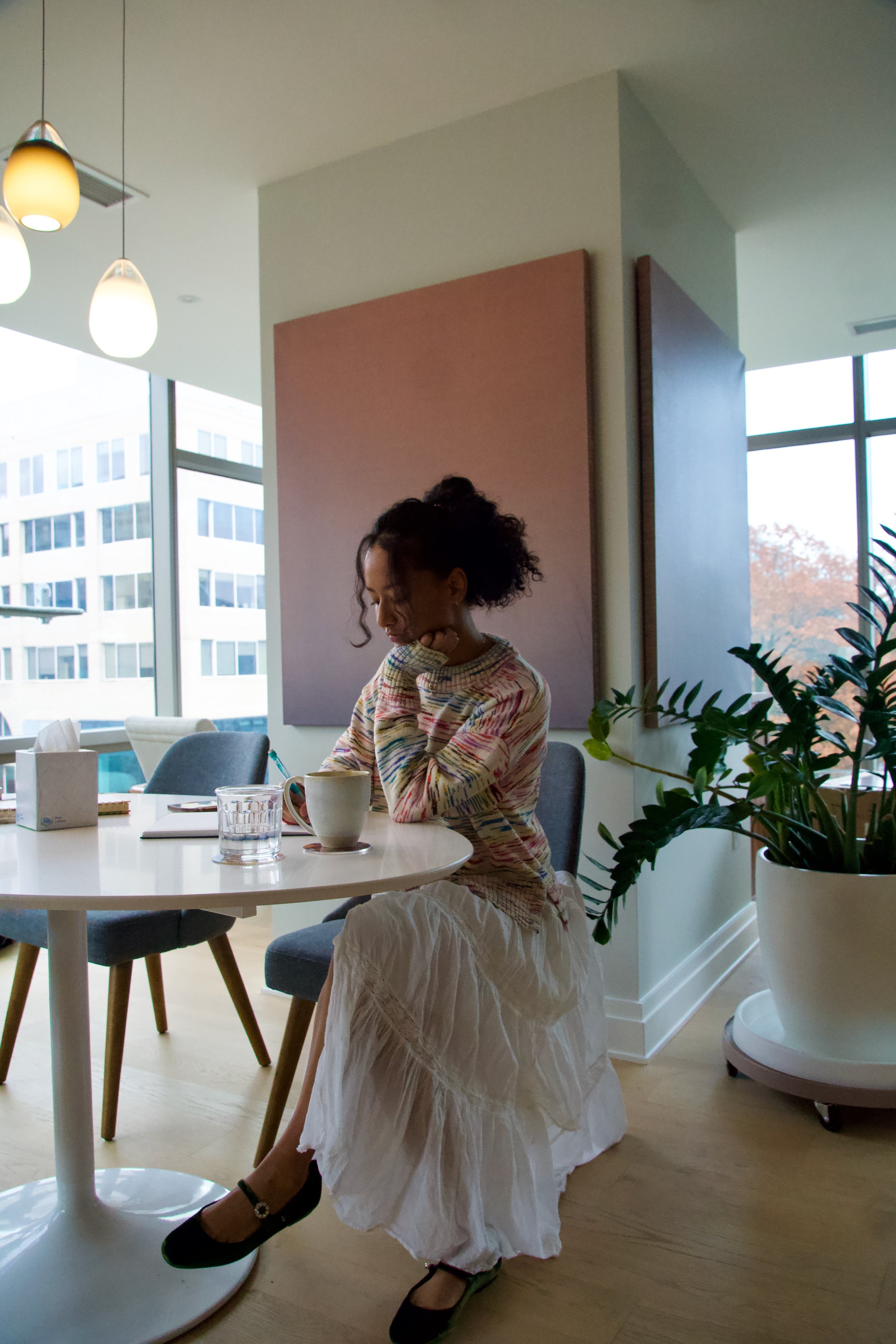Thanksgiving Post: On Conquering Emotional Ambivalence
I discuss the cost of manipulating our feelings and dismissing our intuition, plus how to reclaim our true perspective.
A morning in gratitude. Full look description below.
As we approach the new year there has been a stillness in the air, like the Earth is calling us to stop and take stock before trying to accomplish anything too new and shiny. Despite the onslaught of tasks and responsibilities that keep me drudging through the day-to-day, I can’t help but feel like I am achieving nothing. When I am stuck I turn to the work of essayist and creator of The Marginalian Maria Popova.
In her essay titled The Managed Heart: Emotional Labor and the Psychological Cost of Ambivalence Popova opens with the clarifying question: “What are you unwilling to feel?” There is a paralyzing tension that arises when we, consciously or unconsciously, do the emotional labor of trying to feel that which we are not feeling. Sociologist Arlie Russell Hochschild writes:
“Emotional labor…requires one to induce or suppress feeling in order to sustain the outward countenance that produces the proper state of mind in others…This kind of labor calls for a coordination of mind and feeling, and it sometimes draws on a source of self that we honor as deep and integral to our individuality.”
As we do the work of managing our feelings, the feelings themselves become changed. Emotion serves as a tool to clue us in to where we stand in relation to something or someone by signaling our perspective. The act of filtering our emotions ultimately alters how we experience reality. The dissonance this creates can diminish our self-trust and self-respect, and create what writer George Eliot describes as a “double consciousness.” We find this commonly when dealing with shameful crushes, jobs we hate but do not leave, friendships we have outgrown, etc. This erosion of the self is detrimental in that it creates an illusion that cannot last and is deeply unsettling once revealed.
When we realize our self-betrayal, it reenforces the idea that we cannot trust ourselves. Once we begin to meet our emotions where they are, rather than viewing them as something to be managed, we can begin to unravel the truth of who were are. To reclaim my sense of self, I am reconnecting to what inspires me to trust to my intuition and make art. In Popova’s essay Everything Is Already There: Javier Marías on the Courage to Heed Your Intuitions she quotes Marías as he discusses our tendency to dismiss intuition as false knowledge. He states:
“This has nothing to do with premonitions, there is nothing supernatural or mysterious about it, what’s mysterious is that we pay no heed to it. And the explanation must be a simple one, since it is something shared by so many: it is simply that we know, but hate knowing; we cannot bear to see.”
This brings me back to Popova’s earlier question, “What are you unwilling to feel?” What is your intuition telling you that you are not trusting? Why is that? These are the questions I have asked myself lately as I navigate my own internal dissonance.
~
With that, thank you so much for being here. Whether you are celebrating Thanksgiving or not, I hope you allow yourself to slow down and enjoy the day. Until next week…
Yours Truly,
Kyoko
I am not compensated for the features listed in All-Year Season. My sincerest thank you to Goldstories for supporting the creation of this post.

